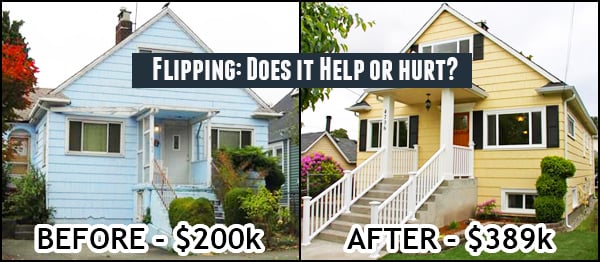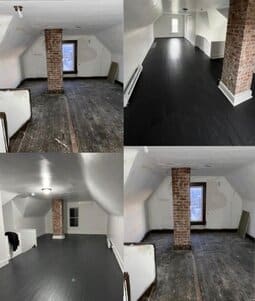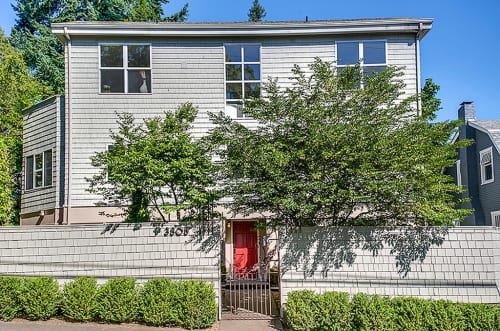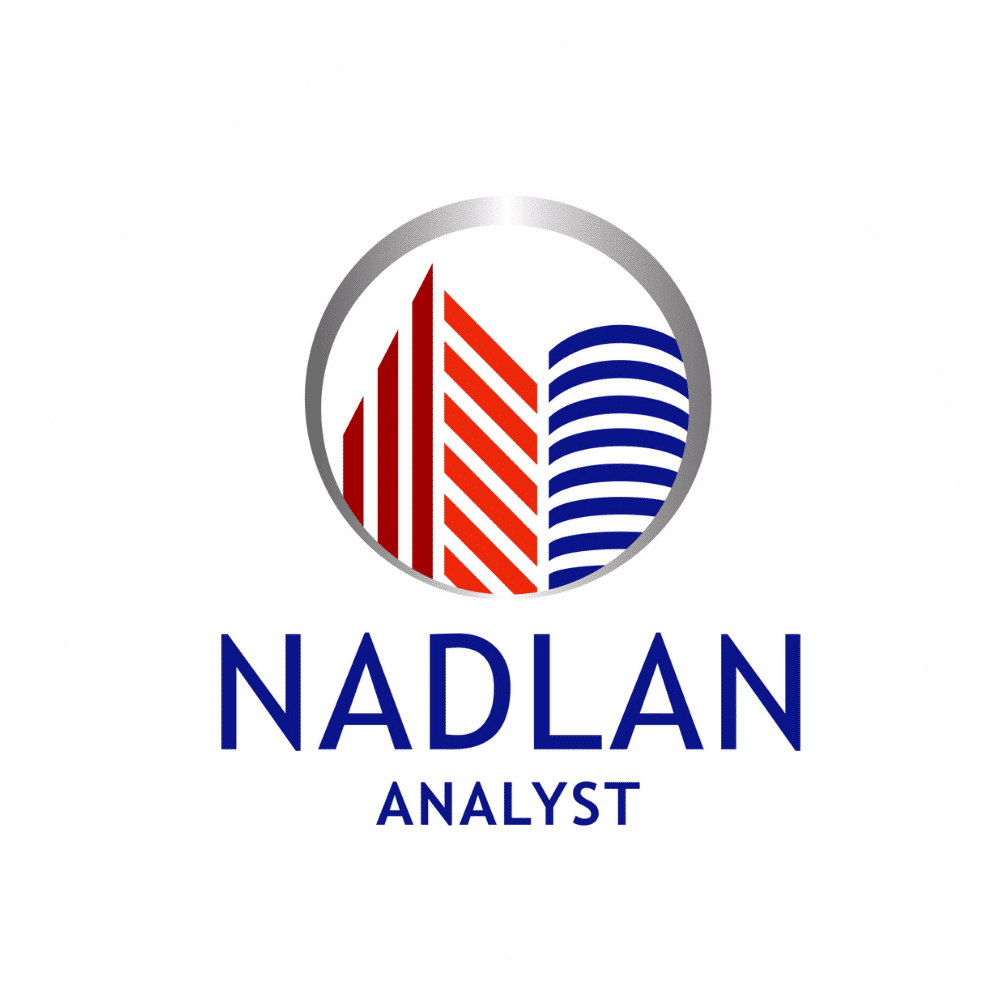Examining joining a Flip deal with an Israeli entrepreneur

Examining joining a Flip deal with an Israeli entrepreneur
Consultation
Is considering joining the Flip deal with an Israeli entrepreneur
(Only after I have examined the transaction)
He takes care of the whole process
And the distribution in the profits will be 50 / 50
The developer seeks to open a joint LLC,
Each of us holds 50% of it, I am a bit reluctant to do so
After all, the property is not his, my property
We only divide by 50 / 50
What would you advise me to do about it?
How can this be resolved in an LLC's opertion agreement?
In general, I would like to have additional points that I should pay attention to,
Thank you
The original responses to the post can be read at the bottom of the current post page on the site or in the link to a post on Facebook and of course you are invited to join the discussion
- Entrepreneur puts money?
- Totally legitimate. In the end, this is a partnership of equal distribution and each one brings its value to the partnership. The money and the knowledge, connections, experience, management of the whole process, etc.
In the pricing agreement, you must include all the details of each partner's responsibility, what each value brings, what happens in different situations during the partnership, in short everything possible so that there will be no surprises. - What he gives in return for 50 percent
- In addition there is the matter of taxation, if the property is registered in your name as a foreign investor at the time of sale, you pay 15 withholding tax at the sale price, not from the profit !! Which ensures that you will file a report at the end of the year for a refund and will not run away with earnings.
Once you have a llc of two or more people, and sure that one of them is American, you will be exempt from the tax deduction of 15% and you will need to submit a report and pay tax at the end of the year. - In my opinion the entrepreneur brings his fortune 50% leverage and therefore invests not from his personal money.
No matter, the main thing is bringing money. But the thing is that the leverage it takes on the property you both bought, so suggest that it be in the event of a property failure in danger regardless of who invested what. Rolling leverage in the pool - I think differently.
1. God forbid llc also named… just not.
2. Why not 70-30… 60-40? - I think the question is what the partner (the entrepreneur) puts into the deal. Local partners from what I have known so far in Flip deals, bring the deal, manage it all and do not put money in their pockets. The question arises who pays for the costs of renovation and maintenance of the property until its sale. If here too the investor pays for everything, I certainly do not see why the property will be registered on the developer but only on the investor. This is in fact the investor's only protection.
- In addition ... there are all kinds of ways to calculate the 50-50 ... check and see that you understand
- It is customary to open an LLC and register the investor as the shareholder in the property (according to the percentage distribution).
In addition, the entrepreneur is the manager of the LLC so he can sign documents… etc.
In OA write down the earnings distribution and probably wants to 50 / 50. - I would start from pricing what he brings.
What does this mean "taking care of the whole process"?
If you were not working with a partner entrepreneur, how much would you have to pay for that function that does what it is supposed to? - My recommendation from personal experience only:
Open your LLC and the partner will open his LLC
2 small companies together property. In sale the Teitel dispenses 2 equal weights after the odds for each LLC. The problem. Another problem is to open up with someone LLC, with whom you know what a sack of trouble he has that might also land on you. - What does your property mean? Is not that an asset you buy together to renovate and sell?
- The owner of the LLC and is the manager,
If you make half a half in the property, there is not even half of logic, the division is in profits and not in sales. If you're half the asset, then you're 50 50 gross, which means you're losing money.
You should protect yourself because the property in your name is not enough.
Half and half it is not even close to make sense. A personal opinion as one who has just completed a successful transaction is very similar.
Successfully? - My suggestion: open llc you hold 100% of the shares, the developer manages a third party of the same llc (MGR). The LLC will sign a JV (Joint Venture Agreement) for the project in which your conditions are specified. All this assuming the entrepreneur did not put money
- Selling someone who has ended such a deal with a very problematic entrepreneur… nowadays chasing him with a recurring request to close llc
Which is currently inactive. The entrepreneur refuses, for no apparent reason, and the boy lives in fear of what that can bring down on him - Chanan Landau
See the comment of
Michael Zalkind - In my opinion the entrepreneur should not have your money and can take a loan at 12 percent and will make more money
- A little note by the technical stuff ... Step one. In any partnership .. Due diligence. I know what his experience with flips is. How much he did. What gains he has made for himself and his partners. Can show? If you go through that, you can go down to the technical details and help a lawyer. 50-50 partnership rules with capital for work is not something unusual.
- Under no circumstance do you open a LLC together if you put all the capital but you are advised to sign a contract with a lawyer that profits will be divided half and half .. At the end of the flip he will submit you an invoice as the project manager of the flip that is his 50% for tax refund as a recognized expense .. We've already done 12 Plipps and it works best and most clean and having no unnecessary complications .. and all sides are satisfied
In addition, I also recommend and even have to speak with an accountant who will explain the process to you! - At the end of the end what matters with those who do business, who is the local entrepreneur? How did you meet him? Should make sure it is reliable and professional in 100%, no agreement does not help with crooks
- ✔️
- As an entrepreneur, who makes flips, if that's what he offers you I would suggest that you do not do the deal with him.
There is no reason in the world to own a property, it's one.
Second, I do not know what the numbers are and what his experience is and what his team would check all of these and accordingly summarizes the distribution of profits.
If this is his first flip, he would not get more than 10-15 of the profits.
If he was not in the field, I would not go into the deal at all!
Flip is a complex deal and needs to be understood.
You can make a lot of money, you can lose. You have to understand the risks and the process, that's my opinion at least.
Another thing,
What's the deal?
What is the market?
What is the renovation? how much does it cost? How many anomalies he took? How long to sell?
It is very important that you understand the process and know how to analyze it and manage it if necessary.
In the end if you invested in 100% and it is 0% risk in its reputation that I am not sure how many exist and built, it is mostly reputation in front of you that is not some public company that everyone knows.
Your risk is your best money, and it's a risk. Because your money can not return or return in part.
Do not know who the entrepreneur is and what the numbers may be and all this misunderstanding, but it is important to understand Flip's complexities before entering into a deal.
If you would like to consult, I will be happy to help you or join you with recommended entrepreneurs because I do not currently have flip flaps and I have investors waiting for deals.
Have lots and lots of success anyway! - We have already mentioned almost everything here.
Your only security is this asset and therefore the llc opening and ownership must be yours only. The wholly owned subsidiary of the LLC owns 100% of the shares. The entrepreneur is defined as an excellent company manager and statutes having a division of 50 / 50 spaces.
I need to point out something as an entrepreneur who makes a lot of flips and lots of multi. If the investor has the right investment, he believes and knows the entrepreneur so he should not have any problem with the distribution being 50 / 50, 60 / 40 (in favor of the entrepreneur), and so on. Sometimes this is also reversed (60 to the investor).
You must understand that the entrepreneur does all the work, from the beginning of the project in search of investors, attorney, accountant, establishment of an LLC company, project management, contractor management, field personnel etc. Therefore most of the entrepreneurs (those who have done several projects will dictate the terms)
New entrepreneurs who are "hungry" for investors / money will compromise on the terms - It is necessary to distinguish between property ownership and the distribution of profits.
Ownership of the property is determined by the capital source of the transaction. If you bring all the capital (purchase + redevelopment) you (as your private or LLC) is entitled to register as the owner of the property. If the entrepreneur brings capital and / or financing for a possible transaction to register a share in the ownership, the majority will remain in the investor's possession.
With respect to the distribution of profits, as agreed upon and set forth in OA Printing Agrient.
I practice and demand that the entrepreneur, in Flip's transactions, invest his capital in the transaction, as an expression of his confidence in the project. The ratio / quantity of the entrepreneur's capital according to the quality / experience of the entrepreneur and subject to the mother, he brings the financing to the project.
In addition, in my experience, I require to include in the OA a "fine / prize" mechanism in the context of the schedule.
Testing the credibility of the entrepreneur and his experience in Flips is a prerequisite for any transaction. Successfully!!!! - 50 / 50 It's very legitimate, but registering the same share ratio at LLC really is not! This is your safest and it should stay 100%.
The property is registered only to the investor, making a neat contract on the terms, and then he can put a kind of warning note, so you can not sell if you have not paid his share of the profits.
- Tal Saadon Noam Nahum
- Tal Nahmany
- I guess you have a good reason to completely trust this partner? Otherwise you would not consider such an arrangement. Must consult a lawyer - everything has an impact - the type of LLC, invoices for all the work to show how much income you have invested…. What you are showing here is very complex. If the partner is not aware of it, it is very worrying - it means he does not have enough experience or it is an exercise
- It is widely accepted that an investor receives 100% in the LLC and the entrepreneur is defined as the manager of the company and the founders' agreement defines the distribution of profits.









































If the entrepreneur does not name equity.
1. Your full ownership in llc.
2. The developer will be the manager of the llc.
3. The profit sharing can be 50 / 50. There's no problem with that.
The percentages are numbers without content. That is, if you only get 20% of profit and entrepreneur 80%, but will you make an annual return of 25% will it satisfy you?
When you are offered a project, you need to consider a few parameters:
A. Is the profitability percentage of the project really rational. Careful examination of the comp (similar properties - comparing apples to apples).
B. The return on investment time (DOM days in market) of similar properties. That is, how long from the day the property is offered for rent it will probably sell (straight relationship between profitability and investment return time).
third. What is and how do I correctly calculate the profit I made (cash on cash) and will it satisfy me?
D. What is the entrepreneur's experience? How many projects did he do?
God. Does the calculation of the future profit presented to you in the project have an "ash" for mistakes and unexpected expenses.
and. Does the contractor with whom the developer wants to manage the project is familiar to him? Has he made deals with him in the past?
G. Does the proposed renovation level match the area, neighborhood, street and property?
There are also a number of other things to consider before making such a decision.
Successfully!!
It is widely accepted that an investor receives 100% in the LLC and the entrepreneur is defined as the manager of the company and the founders' agreement defines the distribution of profits.
I assume you have good reason to trust this partner completely? Otherwise you would not consider such an arrangement. A lawyer must be consulted - everything has an effect - the type of LLC, invoices for all the work to show the IRS how much they invested.... What you present here is very complex. If the partner is not aware of this, it is very worrying - it means that he does not have enough experience or it is an exercise
Tal Nahmany
Tal Saadon Noam Nahum
50 / 50 It's very legitimate, but registering the same share ratio at LLC really is not! This is your safest and it should stay 100%.
The property is registered only to the investor, making a neat contract on the terms, and then he can put a kind of warning note, so you can not sell if you have not paid his share of the profits.
It is necessary to distinguish between property ownership and the distribution of profits.
Ownership of the property is determined by the capital source of the transaction. If you bring all the capital (purchase + redevelopment) you (as your private or LLC) is entitled to register as the owner of the property. If the entrepreneur brings capital and / or financing for a possible transaction to register a share in the ownership, the majority will remain in the investor's possession.
With respect to the distribution of profits, as agreed upon and set forth in OA Printing Agrient.
I practice and demand that the entrepreneur, in Flip's transactions, invest his capital in the transaction, as an expression of his confidence in the project. The ratio / quantity of the entrepreneur's capital according to the quality / experience of the entrepreneur and subject to the mother, he brings the financing to the project.
In addition, in my experience, I require to include in the OA a "fine / prize" mechanism in the context of the schedule.
Testing the credibility of the entrepreneur and his experience in flips is a prerequisite and essential for any transaction.
I would be happy to help as needed. Successfully!!!!
We have already mentioned almost everything here.
Your only security is this asset and therefore the llc opening and ownership must be yours only. The wholly owned subsidiary of the LLC owns 100% of the shares. The entrepreneur is defined as an excellent company manager and statutes having a division of 50 / 50 spaces.
I need to point out something as an entrepreneur who makes a lot of flips and lots of multi. If the investor has the right investment, he believes and knows the entrepreneur so he should not have any problem with the distribution being 50 / 50, 60 / 40 (in favor of the entrepreneur), and so on. Sometimes this is also reversed (60 to the investor).
You must understand that the entrepreneur does all the work, from the beginning of the project in search of investors, attorney, accountant, establishment of an LLC company, project management, contractor management, field personnel etc. Therefore most of the entrepreneurs (those who have done several projects will dictate the terms)
New entrepreneurs who are "hungry" for investors / money will compromise on the terms
As an entrepreneur, who makes flips, if that's what he offers you I would suggest that you do not do the deal with him.
There is no reason in the world to own a property, it's one.
Second, I do not know what the numbers are and what his experience is and what his team would check all of these and accordingly summarizes the distribution of profits.
If this is his first flip, he would not get more than 10-15 of the profits.
If he was not in the field, I would not go into the deal at all!
Flip is a complex deal and needs to be understood.
You can make a lot of money, you can lose. You have to understand the risks and the process, that's my opinion at least.
Another thing,
What's the deal?
What is the market?
What is the renovation? how much does it cost? How many anomalies he took? How long to sell?
It is very important that you understand the process and know how to analyze it and manage it if necessary.
In the end if you invested in 100% and it is 0% risk in its reputation that I am not sure how many exist and built, it is mostly reputation in front of you that is not some public company that everyone knows.
Your risk is your best money, and it's a risk. Because your money can not return or return in part.
Do not know who the entrepreneur is and what the numbers may be and all this misunderstanding, but it is important to understand Flip's complexities before entering into a deal.
If you would like to consult, I will be happy to help you or join you with recommended entrepreneurs because I do not currently have flip flaps and I have investors waiting for deals.
Have lots and lots of success anyway!
✔️
At the end of the end what matters with those who do business, who is the local entrepreneur? How did you meet him? Should make sure it is reliable and professional in 100%, no agreement does not help with crooks
Under no circumstances open an LLC together if you put all the capital, but it is recommended to sign a contract with a lawyer that the profits will be divided half and half.. At the end of the flip, he will submit an invoice to you as if he were the project manager of the flip, which is his 50% for a tax refund as a recognized expense.. We have already done 12 flips and it works the best and the cleanest without unnecessary complications.. and all parties are satisfied
In addition, I also recommend and even have to speak with an accountant who will explain the process to you!
A little note by the technical stuff ... Step one. In any partnership .. Due diligence. I know what his experience with flips is. How much he did. What gains he has made for himself and his partners. Can show? If you go through that, you can go down to the technical details and help a lawyer. 50-50 partnership rules with capital for work is not something unusual.
In my opinion, the entrepreneur does not need your money, he can take a loan at 12 percent and make more money
Chanan Landau
See the comment of
Michael Zalkind
Selling someone who has ended such a deal with a very problematic entrepreneur… nowadays chasing him with a recurring request to close llc
Which is currently inactive. The entrepreneur refuses, for no apparent reason, and the boy lives in fear of what that can bring down on him
My suggestion: open llc you hold 100% of the shares, the developer manages a third party of the same llc (MGR). The LLC will sign a JV (Joint Venture Agreement) for the project in which your conditions are specified. All this assuming the entrepreneur did not put money
The owner of the LLC and is the manager,
If you make half a half in the property, there is not even half of logic, the division is in profits and not in sales. If you're half the asset, then you're 50 50 gross, which means you're losing money.
You should protect yourself because the property in your name is not enough.
Half and half it is not even close to make sense. A personal opinion as one who has just completed a successful transaction is very similar.
Successfully?
The owner of the LLC and is the manager,
If you make half a half in the property, there is not even half of logic, the division is in profits and not in sales. If you're half the asset, then you're 50 50 gross, which means you're losing money.
You should protect yourself because the property in your name is not enough.
Half and half it is not even close to make sense. A personal opinion as one who has just completed a successful transaction is very similar.
Successfully?
What does your property mean? Is not that an asset you buy together to renovate and sell?
What does your property mean? Is not that an asset you buy together to renovate and sell?
My recommendation from personal experience only:
Open your LLC and the partner will open his LLC
2 small companies together property. In sale the Teitel dispenses 2 equal weights after the odds for each LLC. The problem. Another problem is to open up with someone LLC, with whom you know what a sack of trouble he has that might also land on you.
My recommendation from personal experience only:
Open your LLC and the partner will open his LLC
2 small companies together property. In sale the Teitel dispenses 2 equal weights after the odds for each LLC. The problem. Another problem is to open up with someone LLC, with whom you know what a sack of trouble he has that might also land on you.
I would start from pricing what he brings.
What does this mean "taking care of the whole process"?
If you were not working with a partner entrepreneur, how much would you have to pay for that function that does what it is supposed to?
I would start from pricing what he brings.
What does this mean "taking care of the whole process"?
If you were not working with a partner entrepreneur, how much would you have to pay for that function that does what it is supposed to?
It is customary to open an LLC and register the investor as the shareholder in the property (according to the percentage distribution).
In addition, the entrepreneur is the manager of the LLC so he can sign documents… etc.
In OA write down the earnings distribution and probably wants to 50 / 50.
It is customary to open an LLC and register the investor as the shareholder in the property (according to the percentage distribution).
In addition, the entrepreneur is the manager of the LLC so he can sign documents… etc.
In OA write down the earnings distribution and probably wants to 50 / 50.
In addition ... there are all kinds of ways to calculate the 50-50 ... check and see that you understand
In addition ... there are all kinds of ways to calculate the 50-50 ... check and see that you understand
I think the question is what the partner (the entrepreneur) puts into the deal. Local partners from what I have known so far in Flip deals, bring the deal, manage it all and do not put money in their pockets. The question arises who pays for the costs of renovation and maintenance of the property until its sale. If here too the investor pays for everything, I certainly do not see why the property will be registered on the developer but only on the investor. This is in fact the investor's only protection.
I think the question is what the partner (the entrepreneur) puts into the deal. Local partners from what I have known so far in Flip deals, bring the deal, manage it all and do not put money in their pockets. The question arises who pays for the costs of renovation and maintenance of the property until its sale. If here too the investor pays for everything, I certainly do not see why the property will be registered on the developer but only on the investor. This is in fact the investor's only protection.
I think differently.
1. God forbid llc also named… just not.
2. Why not 70-30… 60-40?
I think differently.
1. God forbid llc also named… just not.
2. Why not 70-30… 60-40?
In my opinion the entrepreneur brings his fortune 50% leverage and therefore invests not from his personal money.
Not that it matters, the main thing is money.
But the thing is that the leverage is taken on the property that you both purchased, so suggest that the exception is that if the failure of the property is in danger regardless of who invested what.
Again I may be wrong and the entrepreneur brings money personally, but a classic entrepreneur rolls from leverage
Best regards
In my opinion the entrepreneur brings his fortune 50% leverage and therefore invests not from his personal money.
Not that it matters, the main thing is money.
But the thing is that the leverage is taken on the property that you both purchased, so suggest that the exception is that if the failure of the property is in danger regardless of who invested what.
Again I may be wrong and the entrepreneur brings money personally, but a classic entrepreneur rolls from leverage
Best regards
In addition there is the matter of taxation, if the property is registered in your name as a foreign investor at the time of sale, you pay 15 withholding tax at the sale price, not from the profit !! Which ensures that you will file a report at the end of the year for a refund and will not run away with earnings.
Once you have a llc of two or more people, and sure that one of them is American, you will be exempt from the tax deduction of 15% and you will need to submit a report and pay tax at the end of the year.
In addition there is the matter of taxation, if the property is registered in your name as a foreign investor at the time of sale, you pay 15 withholding tax at the sale price, not from the profit !! Which ensures that you will file a report at the end of the year for a refund and will not run away with earnings.
Once you have a llc of two or more people, and sure that one of them is American, you will be exempt from the tax deduction of 15% and you will need to submit a report and pay tax at the end of the year.
What he gives in return for 50 percent
What he gives in return for 50 percent
Totally legit. In the end it's a partnership with equal distribution and everyone brings their own value to the partnership. You have the money and he has the knowledge, connections, experience, management of the entire process, etc.
In the pricing agreement, you must include all the details of each partner's responsibility, what each value brings, what happens in different situations during the partnership, in short everything possible so that there will be no surprises.
Totally legit. In the end it's a partnership with equal distribution and everyone brings their own value to the partnership. You have the money and he has the knowledge, connections, experience, management of the entire process, etc.
In the pricing agreement, you must include all the details of each partner's responsibility, what each value brings, what happens in different situations during the partnership, in short everything possible so that there will be no surprises.
Entrepreneur puts money?
Entrepreneur puts money?